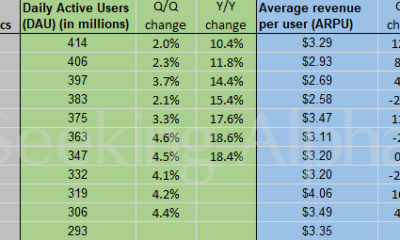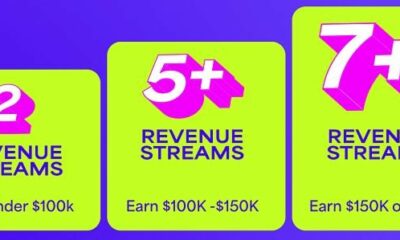SOCIAL
Op-Ed: After abject failure in Australia, anti-vaxxers pick on 6 year old on Twitter

The Omicron Covid variant has prompted firms to get tough on vaccines and masks. — © AFP
The question is this – Who the hell does anyone think they are, picking on a mother and 6-year-old kid? This is a tale of abject gutlessness. “Anti-vax” is now a synonym for “failure”, both in fact and in basic decency. A Gold Coast mother spent an entire day managing trolls after posting a pic of her daughter getting vaccinated.
Jessica Stokes-Parish is a medical educator and assistant professor at Bond University. She’s also a registered nurse. So it makes sense she’d post in support of community health measures. Her daughter’s vaccination was routine.
Nothing to see here, you’d think, but then trolls usually see things that don’t exist. The trolls, as usual, stuck religiously to the script of the far right, cut and paste stuff about what a terrible mother Ms. Stokes-Parish was, and so on.
Total failure of anti-vax in Australia.
This level of mindless abuse is bordering on psychotic, as well as pretty obvious harassment according to any reasonable definition. There’s another side to this tale of idiocy, though.
Australia is now one of the most highly vaccinated countries in the world. Obviously, nobody gave or gives a damn what the anti-vaxxers have to say. That war is long since over. The anti-vaxxers have been massively outvoted by the vaccinations.
The Gold Coast is Australia’s equivalent of Miami. The local un-vaccination rate is higher than elsewhere. The result has been predictable. The infection rate on the Gold Coast is a lot higher. Despite ongoing efforts to get people vaccinated, there’s a residue of people who aren’t.
The logic of anti-vax, a contradiction in terms.
Let’s clarify the position here:
If you’re an Australian, you’ve been vaccinated against anything and everything since birth.
- People who’ve been vaccinated their whole lives are now complaining about other people getting vaccinated.
- The idea of “choice” about getting vaccinated is absurd. Your “choice” is depriving other people of choice. If you want to get COVID, fine. That doesn’t give you the right to choose for other people.
- This is the logic which doomed anti-vax in Australia. it makes no sense at all. Add to this the quaint if obnoxious habit of quoting American lunatics as an argument. It was always going to be game over for anti-vax.
Publication of defamatory statements Australian law and Twitter’s code of conduct
Just recently the High Court of Australia made an interesting ruling on the subject of online hate. This ruling may have ramifications for Twitter and better still, the peddlers of online poison worldwide.
It’s not much of a step from finding publishers liable to “guilt by association” for Twitter and other social media. The same principles apply – This enabling of trolls is basically illegal and actionable. (This has NOT been tested by a court, but it’s a pretty obvious argument.)
There’s another little issue – Twitter’s code of conduct is pretty unambiguous. The original social media platform can do whatever it wants about any sort of trolling, whenever it wants.
That’s the expectation, too, which is pretty relevant. The days of social media keeping the trolls in paid jobs are long gone. People are expected to act like human beings online these days.
…So why hasn’t Twitter done something about this? There’s no indication that Twitter has taken any action against these well-known serial trolls. How is that good enough or anything like good enough, Twitter?
An observation
Try this logic:
Nobody’s asking for health advice from hypocritical nutcases and political skanks for some reason. Point made? If not, grovel in to your local idiocy factory and talk to whoever it is who tells you what your opinions are. See if they can explain why 90% plus of Australia is vaccinated and you aren’t.
While you’re at it, see if you can find out how popular picking on a 6-year-old child is in this country. You’ll be surprised. Nobody else will be.
Source link
SOCIAL
Snapchat Explores New Messaging Retention Feature: A Game-Changer or Risky Move?

In a recent announcement, Snapchat revealed a groundbreaking update that challenges its traditional design ethos. The platform is experimenting with an option that allows users to defy the 24-hour auto-delete rule, a feature synonymous with Snapchat’s ephemeral messaging model.
The proposed change aims to introduce a “Never delete” option in messaging retention settings, aligning Snapchat more closely with conventional messaging apps. While this move may blur Snapchat’s distinctive selling point, Snap appears convinced of its necessity.
According to Snap, the decision stems from user feedback and a commitment to innovation based on user needs. The company aims to provide greater flexibility and control over conversations, catering to the preferences of its community.
Currently undergoing trials in select markets, the new feature empowers users to adjust retention settings on a conversation-by-conversation basis. Flexibility remains paramount, with participants able to modify settings within chats and receive in-chat notifications to ensure transparency.
Snapchat underscores that the default auto-delete feature will persist, reinforcing its design philosophy centered on ephemerality. However, with the app gaining traction as a primary messaging platform, the option offers users a means to preserve longer chat histories.
The update marks a pivotal moment for Snapchat, renowned for its disappearing message premise, especially popular among younger demographics. Retaining this focus has been pivotal to Snapchat’s identity, but the shift suggests a broader strategy aimed at diversifying its user base.
This strategy may appeal particularly to older demographics, potentially extending Snapchat’s relevance as users age. By emulating features of conventional messaging platforms, Snapchat seeks to enhance its appeal and broaden its reach.
Yet, the introduction of message retention poses questions about Snapchat’s uniqueness. While addressing user demands, the risk of diluting Snapchat’s distinctiveness looms large.
As Snapchat ventures into uncharted territory, the outcome of this experiment remains uncertain. Will message retention propel Snapchat to new heights, or will it compromise the platform’s uniqueness?
Only time will tell.
SOCIAL
Catering to specific audience boosts your business, says accountant turned coach

While it is tempting to try to appeal to a broad audience, the founder of alcohol-free coaching service Just the Tonic, Sandra Parker, believes the best thing you can do for your business is focus on your niche. Here’s how she did just that.
When running a business, reaching out to as many clients as possible can be tempting. But it also risks making your marketing “too generic,” warns Sandra Parker, the founder of Just The Tonic Coaching.
“From the very start of my business, I knew exactly who I could help and who I couldn’t,” Parker told My Biggest Lessons.
Parker struggled with alcohol dependence as a young professional. Today, her business targets high-achieving individuals who face challenges similar to those she had early in her career.
“I understand their frustrations, I understand their fears, and I understand their coping mechanisms and the stories they’re telling themselves,” Parker said. “Because of that, I’m able to market very effectively, to speak in a language that they understand, and am able to reach them.”Â
“I believe that it’s really important that you know exactly who your customer or your client is, and you target them, and you resist the temptation to make your marketing too generic to try and reach everyone,” she explained.
“If you speak specifically to your target clients, you will reach them, and I believe that’s the way that you’re going to be more successful.
Watch the video for more of Sandra Parker’s biggest lessons.
SOCIAL
Instagram Tests Live-Stream Games to Enhance Engagement

Instagram’s testing out some new options to help spice up your live-streams in the app, with some live broadcasters now able to select a game that they can play with viewers in-stream.
As you can see in these example screens, posted by Ahmed Ghanem, some creators now have the option to play either “This or That”, a question and answer prompt that you can share with your viewers, or “Trivia”, to generate more engagement within your IG live-streams.
That could be a simple way to spark more conversation and interaction, which could then lead into further engagement opportunities from your live audience.
Meta’s been exploring more ways to make live-streaming a bigger consideration for IG creators, with a view to live-streams potentially catching on with more users.
That includes the gradual expansion of its “Stars” live-stream donation program, giving more creators in more regions a means to accept donations from live-stream viewers, while back in December, Instagram also added some new options to make it easier to go live using third-party tools via desktop PCs.
Live streaming has been a major shift in China, where shopping live-streams, in particular, have led to massive opportunities for streaming platforms. They haven’t caught on in the same way in Western regions, but as TikTok and YouTube look to push live-stream adoption, there is still a chance that they will become a much bigger element in future.
Which is why IG is also trying to stay in touch, and add more ways for its creators to engage via streams. Live-stream games is another element within this, which could make this a better community-building, and potentially sales-driving option.
We’ve asked Instagram for more information on this test, and we’ll update this post if/when we hear back.
-

 PPC6 days ago
PPC6 days ago19 Best SEO Tools in 2024 (For Every Use Case)
-

 MARKETING7 days ago
MARKETING7 days agoEcommerce evolution: Blurring the lines between B2B and B2C
-
SEARCHENGINES5 days ago
Daily Search Forum Recap: April 19, 2024
-
SEARCHENGINES6 days ago
Daily Search Forum Recap: April 18, 2024
-

 WORDPRESS6 days ago
WORDPRESS6 days agoHow to Make $5000 of Passive Income Every Month in WordPress
-

 SEO7 days ago
SEO7 days ago2024 WordPress Vulnerability Report Shows Errors Sites Keep Making
-

 WORDPRESS6 days ago
WORDPRESS6 days ago10 Amazing WordPress Design Resouces – WordPress.com News
-

 SEO6 days ago
SEO6 days ago25 WordPress Alternatives Best For SEO
















You must be logged in to post a comment Login